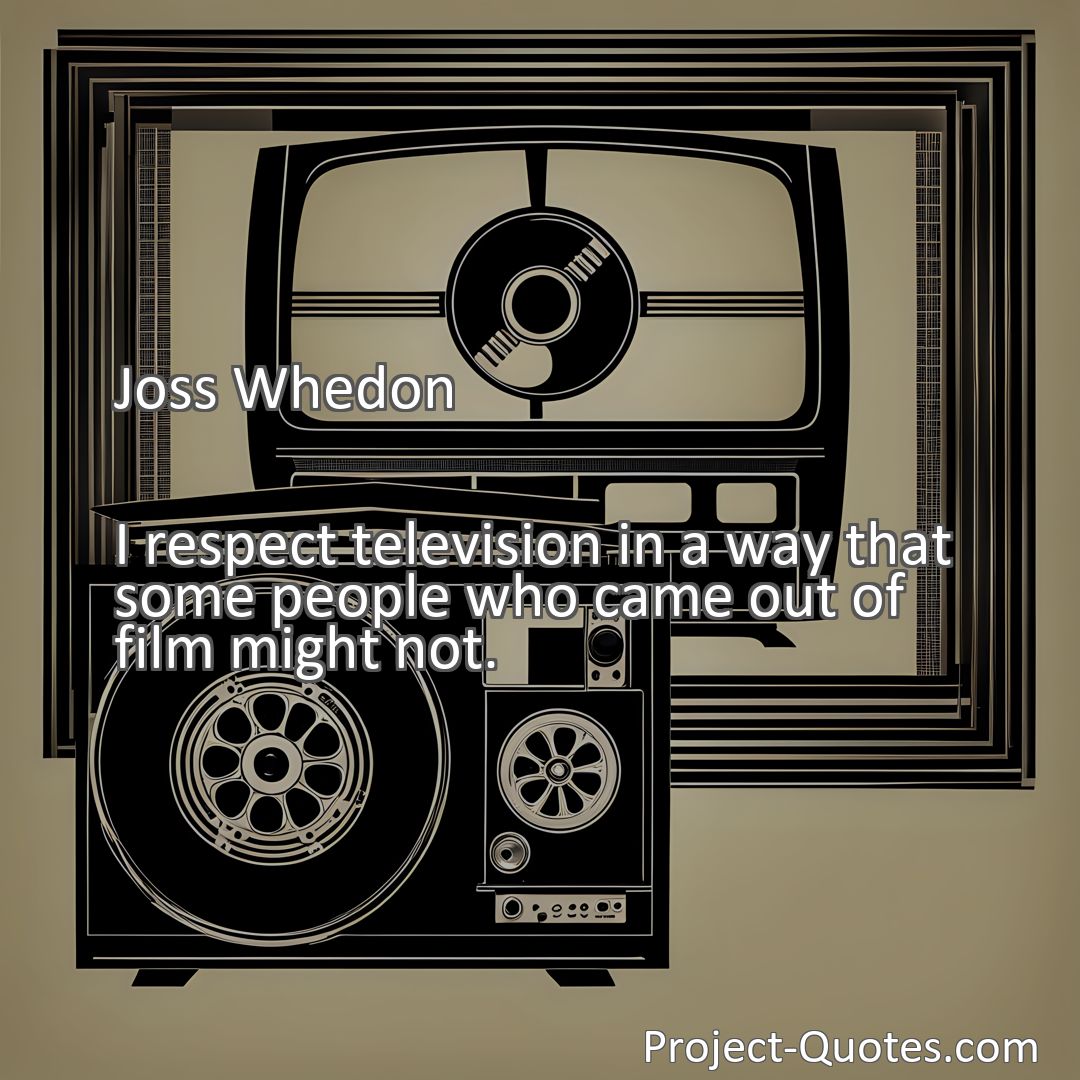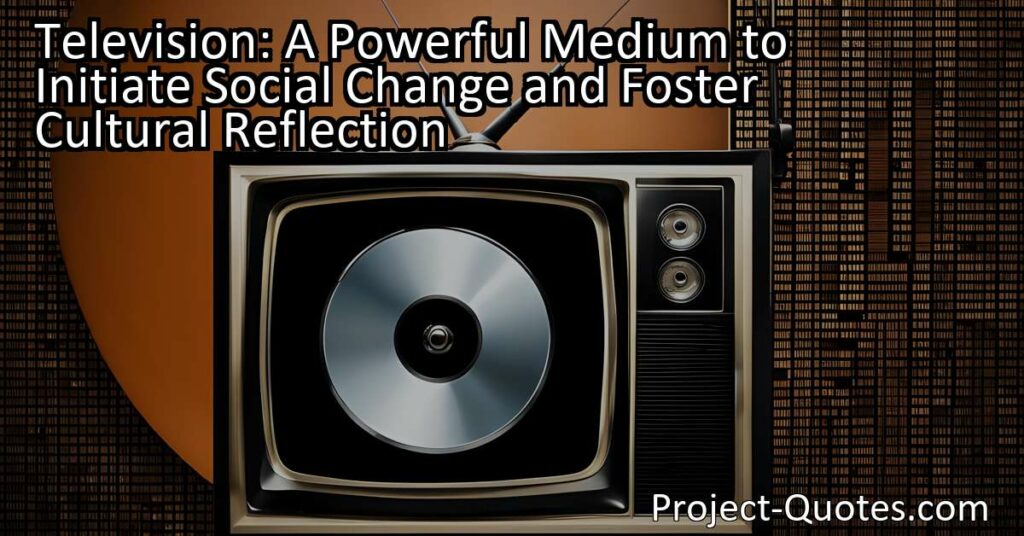I respect television in a way that some people who came out of film might not.
Joss Whedon
Television: A Powerful Medium to Initiate Social Change and Foster Cultural Reflection Television has the unique power to reach a wide and diverse audience, sparking conversations and even initiating social change. With the ability to provide long-form storytelling, amplify diverse voices, and shed light on social issues, television serves as a significant medium for promoting inclusivity and fostering empathy among viewers. By recognizing and appreciating television’s impact, we can fully engage with the stories it tells and celebrate its role in shaping our lives and society.
Table of Contents
Meaning of Quote – I respect television in a way that some people who came out of film might not.
Television has become an undeniable part of our lives, with its influence stretching far and wide. While many may argue that movies hold a more prestigious place in the realm of storytelling, Joss Whedon’s quote reminds us of the importance of respecting television as a medium in its own right.
Television holds a unique power that sets it apart from film, and it is this very power that Whedon acknowledges. Through various channels, both broadcast and streaming platforms, television has the ability to reach a wide and diverse audience. It has the potential to bring people together, spark conversations, and even initiate social change.
One of the reasons why television deserves our respect is its capacity for long-form storytelling. Unlike movies, which are usually limited to a couple of hours, television series have the opportunity to delve deeper into characters, plotlines, and themes. They can take their time in developing intricate narratives, allowing viewers to form a stronger connection with the story and its characters. Through multi-season journeys, television series have the ability to create immersive worlds that captivate audiences and leave a lasting impact.
Moreover, television offers a platform for diverse voices and stories to be heard. With the rise of streaming services, there has been a proliferation of content that breaks away from traditional norms and pushes boundaries. Television series such as “Orange is the New Black,” “Pose,” and “Master of None” have shed light on experiences and perspectives that were previously underrepresented in mainstream media. By amplifying these voices, television has the potential to challenge societal norms, promote inclusivity, and foster empathy among its viewers.
In addition to its storytelling potential, television also holds a mirror to our own lives and the world we live in. Through both fictional and non-fictional programming, television illuminates social, political, and cultural issues. It offers a platform for us to engage with these topics and encourages critical thinking and discussion. Shows like “Black Mirror” and “The Handmaid’s Tale” serve as cautionary tales, provoking thought and raising important questions about the future of our society. Meanwhile, documentaries like “Planet Earth” and “Cosmos” educate and inspire us to preserve and explore our planet. Television, therefore, plays a significant role in shaping our perceptions and understanding of the world around us.
Furthermore, television has always been a powerful tool for escapism. In a fast-paced, often stressful world, television offers a respite from our everyday lives. It allows us to immerse ourselves in different worlds, to experience adventures, love stories, and triumphs along with our favorite characters. Whether it’s a comedy that makes us laugh out loud or a drama that brings tears to our eyes, television has the ability to evoke strong emotions and transport us to places beyond our imagination.
Beyond its storytelling capabilities, television also serves as a catalyst for cultural phenomena. It has the power to influence trends, shape popular culture, and create lasting legacies. Iconic shows like “Friends,” “The Simpsons,” and “Game of Thrones” not only entertained millions of viewers worldwide but also became cultural touchstones. They introduced catchphrases, inspired fashion trends, and became part of our collective memory.
Despite all these reasons for respecting television, it is important to note that it is not without its flaws. Like any other medium, it is prone to perpetuating harmful stereotypes, promoting mindless consumption, and spurring excessive screen time. However, it is up to the viewers, content creators, and industry as a whole to mitigate these issues and strive for more responsible and inclusive television.
In conclusion, Joss Whedon’s quote reminds us that television deserves our respect as a significant medium for storytelling and cultural reflection. Its power lies in its ability to reach diverse audiences, provide long-form narratives, amplify marginalized voices, and spark thought-provoking discussions. By recognizing and appreciating the impact of television, we can fully engage with the stories it tells and celebrate its role in shaping our lives and society.
I hope this quote inspired image brings you hope and peace. Share it with someone who needs it today!


